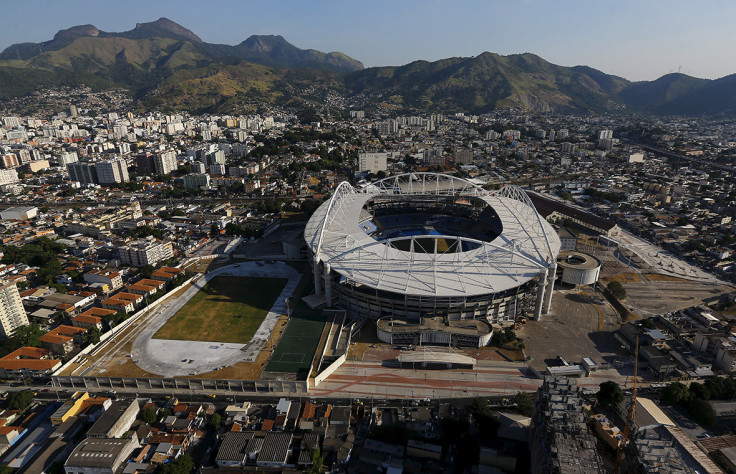Rio Olympics 2016: Another worry for Brazil as major subway line remains incomplete
With less than 50 days to go for the 2016 Summer Olympics, the host city of Rio de Janeiro has seen delays in the completion of a subway line required to transport hundreds and thousands of athletes and fans to sporting venues. A subway has been under expansion for several weeks and Brazilian officials have said construction will be completed in time for the Games to commence.
However, transportation experts fear there may not be enough time to carry out trial runs of trains before the opening ceremony on 5 August, the AP reported.
In recent weeks Rio has hit headlines over its readiness to host the Olympics, with reported delays in construction work, skyrocketing costs, and the state declaring a financial emergency.
The launch date of the subway line has been repeatedly pushed and officials have now announced that it would be inaugurated four days before the sporting event begins.
Jose Manoel Ferreira Goncalves, president of an organisation of railway experts, said: "They are leaving so little time to try this massive system. What guarantee do we have that such a sensitive and complicated project is in order?"
Rio de Janeiro's transportation head told the AP they would finish the job in time. "Every hour counts. We are working around the clock, 24/7 with 1,000 workers in each station."
Rio is constructing an important subway line (Line 4) for the Olympics, which will transport passengers from the world-famous Ipanema beach to the Olympic Park and Village in under 15 minutes, and to other sports venues in the country.
If the line is not ready before 5 August, passengers will have to rely on road transportation, which apparently takes more than an hour to reach the venues. Meanwhile, the full operation of Line 4 was announced to be pushed to 2018.
When Brazil won the bid in 2009 to host the games, the infrastructure projects it had proposed then looked possible because of the economic fortunes and rich offshore oil fields it had back then. However, with oil prices sinking in recent years, the acting governor of the state had to declare a financial emergency requesting federal funds to complete pending projects for the Olympics.
"As the wealth has been wiped out, the dreams we had of the big transformations have also faded," said Gilberto Braga, a finance professor at Ibmec University in Rio.
The federal government had to intervene in Rio's handling of finances, especially after the state failed in its loan payment of $8.3m (£5.7m) to the French Development Agency that has helped pay the state for the subway project. As a result, Brazil's finance ministry has held up $284m that a national bank had set aside for the completion of the subway lines.
"Rio's financial worries are notorious. I acknowledge that it's not a small feat [for the federal government] to approve a loan to a state in financial problems," the news agency quoted Rio's financial secretary Julio Bueno as saying. "On the other hand, we have the Olympics. The subway is vital."
As a backup plan, the officials are counting on special lanes and a rapid transit system for buses if the original subway project is left incomplete.
The cost of the construction has also nearly doubled since the work began with an estimated budget of $1.6bn, and the state auditors are examining the reason for the same. Besides, they are also seeking more information about plans to test the new line.
"We want to know whether shortening the time to test the subway puts the safety of the passengers at risk," said Jonas Lopes, president of Rio de Janeiro state's court of auditors.
Meanwhile, there were reports of others problems with the recently inaugurated Olympics-related projects that have multiplied worries. A major power outage forced passengers to get off a new light rail system that connects Rio's renovated port area to one of its airports. A highway that was inaugurated earlier in June was already found to be damaged with potholes and large cracks. One more project on the coastal line, inaugurated in January, collapsed when it was hit by large waves.

© Copyright IBTimes 2025. All rights reserved.





















